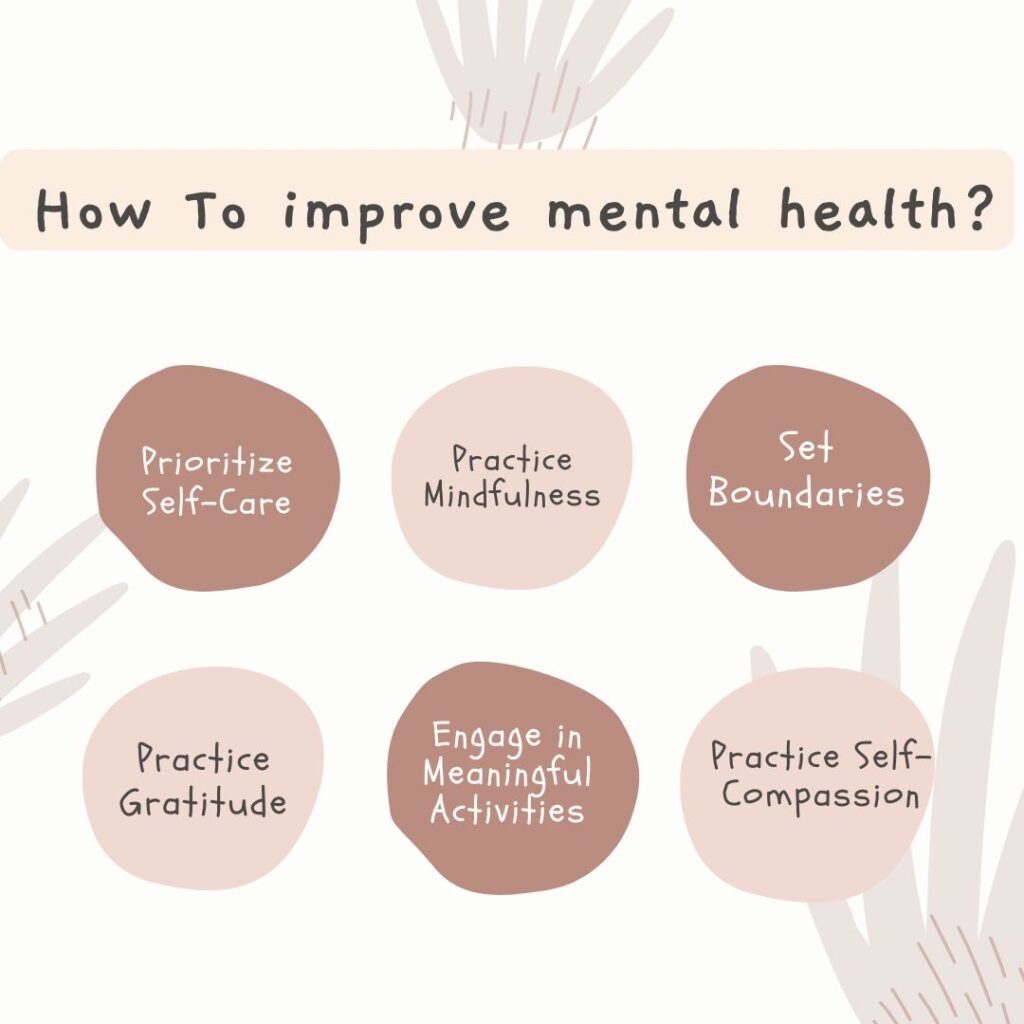In today’s fast-paced world, mental health has become an increasingly significant topic of discussion. As societal pressures, technological advancements, and personal challenges continue to evolve, individuals are faced with navigating the complex intersection of mental well-being. Understanding the intricacies of mental well-being and its intersection with various aspects of life is crucial for fostering resilience and promoting overall wellness.
The Complexities of Mental Health
Recognizing the Spectrum
Mental health exists on a spectrum, ranging from optimal well-being to severe illness. It encompasses various factors, including emotional, psychological, and social aspects of a person’s life. Acknowledging this spectrum is essential for destigmatizing mental health issues and promoting inclusivity in discussions surrounding well-being.
Impact of External Factors
External factors such as work-related stress, financial pressures, societal expectations, and interpersonal relationships can significantly influence mental well-being. Identifying and addressing these external stressors is crucial for maintaining a healthy mindset and preventing the onset of mental health issues.
Importance of Self-Care
Self-care practices play a pivotal role in nurturing mental well-being. Engaging in activities that promote relaxation, mindfulness, and self-reflection can help individuals cope with stress and build resilience against life’s challenges. Prioritizing self-care allows individuals to recharge and maintain a positive outlook on life.
Navigating the Intersection
Work-Life Balance
Achieving a healthy work-life balance is essential for preserving mental well-being. Balancing professional responsibilities with personal time allows individuals to recharge and pursue activities that bring them joy and fulfillment. Employers play a vital role in fostering a supportive work environment that promotes work-life balance and prioritizes employee well-being.
Social Connections
Maintaining meaningful social connections is crucial for mental well-being. Whether through friendships, family relationships, or community involvement, social support systems provide a sense of belonging and emotional support during difficult times. Investing in nurturing relationships helps combat feelings of loneliness and isolation, promoting overall well-being.
Holistic Approaches to Wellness
Embracing holistic approaches to wellness involves addressing mental, physical, and emotional health in tandem. Practices such as regular exercise, nutritious eating, adequate sleep, and stress management techniques contribute to overall well-being. Integrating these practices into daily life fosters a balanced lifestyle conducive to mental well-being.
Read also: AEROBIC EXERCISE: ENERGIZING THE BODY AND MIND FOR OPTIMAL HEALTH
How to improve mental health?

In today’s fast-paced world, mental health has become a crucial aspect of overall well-being. With the pressures of work, relationships, and daily life, it’s essential to prioritize mental well-being and adopt strategies to nurture it. Here are some effective ways to improve mental well-being:
1. Prioritize Self-Care
Taking care of oneself is fundamental to good mental well-being. This includes getting enough sleep, eating a balanced diet, exercising regularly, and engaging in activities that bring joy and relaxation. Prioritizing self-care helps reduce stress and promotes a positive mindset.
2. Practice Mindfulness and Meditation
Mindfulness and meditation techniques can help calm the mind, increase self-awareness, and reduce anxiety and depression. Taking a few minutes each day to practice mindfulness or meditation can have significant benefits for mental well-being.
3. Build a Supportive Network
Having a strong support system is essential for maintaining good mental well-being. Surround yourself with friends, family members, or support groups that uplift and encourage you. Sharing your thoughts and feelings with others can provide comfort and perspective during difficult times.
4. Set Boundaries
Learn to set boundaries to protect your mental and emotional well-being. Say no to activities or commitments that drain your energy or cause undue stress. Setting boundaries allows you to prioritize your needs and maintain a healthy balance in your life.
Before the COVID-19 pandemic, at least 84 million people across the EU suffered from mental health conditions, according to the OECD. This equals to more than 1 in 6 people in the EU (17.3%)
5. Seek Professional Help When Needed
If you’re struggling with your mental health, don’t hesitate to seek professional help. A therapist, counselor, or mental health professional can provide support, guidance, and therapy tailored to your specific needs. Therapy can be a valuable tool for managing mental well-being challenges and building resilience.
6. Practice Gratitude
Cultivating a sense of gratitude can have a powerful impact on mental well-being. Take time each day to reflect on the things you’re grateful for, whether it’s your relationships, accomplishments, or simple pleasures. Focusing on the positive aspects of life can help shift your perspective and improve your overall well-being.
7. Engage in Meaningful Activities
Engage in activities that give your life meaning and purpose. Whether it’s volunteering, pursuing a hobby, or setting meaningful goals, having a sense of purpose can enhance self-esteem and satisfaction with life.
8. Limit Screen Time and Social Media Use
Excessive screen time and social media use have been linked to poor mental health outcomes, including anxiety and depression. Set limits on your screen time and take regular breaks from social media to reduce comparison and feelings of inadequacy.
9. Get Outside and Connect with Nature
Spending time in nature has been shown to reduce stress, improve mood, and enhance overall well-being. Make an effort to spend time outdoors, whether it’s going for a walk in the park, hiking in the mountains, or simply enjoying the beauty of nature in your own backyard.
10. Practice Self-Compassion
Be kind to yourself and practice self-compassion, especially during difficult times. Treat yourself with the same kindness and understanding that you would offer to a friend facing similar challenges. Remember that it’s okay to make mistakes and that self-care is an essential aspect of mental well-being.
By incorporating these strategies into your daily life, you can improve your mental well-being and build resilience to face life’s challenges with strength and optimism. Remember that mental health is a journey, and it’s okay to seek help and support along the way. Prioritize your well-being and take proactive steps to nurture your mental well-being every day.
Mental Health Forum

In today’s fast-paced and often stressful world, mental well-being has become an increasingly significant topic of discussion. With the growing awareness of mental health issues, there is a growing need for safe spaces where individuals can seek support, share experiences, and gain valuable insights. One such space that has gained traction in recent years is the Mental Health Forum.
Understanding the Purpose of Mental Health Forums
1. Providing Support and Empathy
Mental health forums serve as virtual or physical platforms where individuals can openly discuss their struggles, seek advice, and offer support to others facing similar challenges. These forums often cultivate a sense of community and understanding, allowing participants to connect with others who empathize with their experiences.
2. Sharing Personal Stories and Experiences
Within mental health forums, individuals are encouraged to share their personal stories and experiences with mental health issues. This sharing not only helps to break the stigma surrounding mental illness but also fosters an environment of openness and acceptance. Hearing about others’ journeys can offer comfort and reassurance to those who may feel isolated in their struggles.
3. Offering Resources and Guidance
Many mental health forums provide valuable resources, such as information about different mental health conditions, coping strategies, therapy options, and self-care techniques. Participants can benefit from the collective knowledge and experiences shared within these forums, gaining insights into managing their mental well-being more effectively.
Key Features
1. Anonymity and Confidentiality
To ensure a safe and supportive environment, most mental health forums allow participants to remain anonymous. This anonymity encourages individuals to share their experiences more openly without fear of judgment or repercussions. Additionally, strict confidentiality policies are often in place to protect the privacy of forum members.
2. Moderation and Support
Trained moderators play a crucial role in maintaining the integrity of mental health forums. They ensure that discussions remain respectful and supportive, intervene if conflicts arise, and provide guidance when needed. Moderators may also offer resources and referrals to professional help for individuals in crisis.
3. Diverse Community
Mental Health Forums attract participants from diverse backgrounds, each bringing their own unique perspectives and insights to the discussions. This diversity enriches the forum experience and allows individuals to learn from a wide range of experiences and viewpoints.
Achieving good mental health entails reaching a state of overall wellness where individuals can effectively harness their capabilities, manage stress, engage in work, and actively participate in community endeavors. Nonetheless, the prevalence of mental health issues within the EU remains substantial. Enhancing mental well-being has emerged as both a social imperative and an economic necessity for the European Union and its member states, particularly underscored by the COVID-19 pandemic's impact. The World Health Organization highlights a global increase of 25% in anxiety and depression during the pandemic's initial year. Moreover, the European Commission has noted a heightened sense of loneliness across the EU.
Benefits of Participating in Mental Health Forums
1. Peer Support and Understanding
Engaging in mental health forums provides individuals with an invaluable source of peer support and understanding. Connecting with others who share similar experiences can reduce feelings of isolation and loneliness, fostering a sense of belonging and validation.
2. Access to Information and Resources
Mental health forums offer access to a wealth of information and resources related to mental well-being. Participants can learn about different treatment options, self-help techniques, and community support services, empowering them to take proactive steps towards improving their mental health.
3. Breaking the Stigma
By openly discussing mental health issues, mental health forums play a crucial role in breaking down the stigma associated with mental illness. Normalizing conversations about mental well-being encourages individuals to seek help when needed and promotes greater acceptance and understanding within society.
Conclusion
In conclusion, the discourse surrounding mental health has become increasingly vital in today’s fast-paced world. Understanding its complexities, including the spectrum of mental well-being and the impact of external factors, is crucial. Prioritizing self-care, fostering social connections, and embracing holistic wellness approaches are essential steps in navigating the intersection of mental well-being with various aspects of life. Furthermore, mental health forums provide invaluable support, resources, and opportunities for breaking the stigma surrounding mental illness. By incorporating these strategies and engaging in supportive communities, individuals can improve their mental health, build resilience, and contribute to a more empathetic and understanding society.
